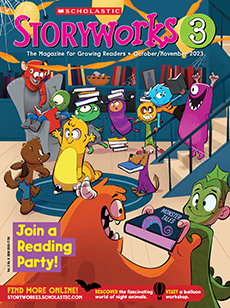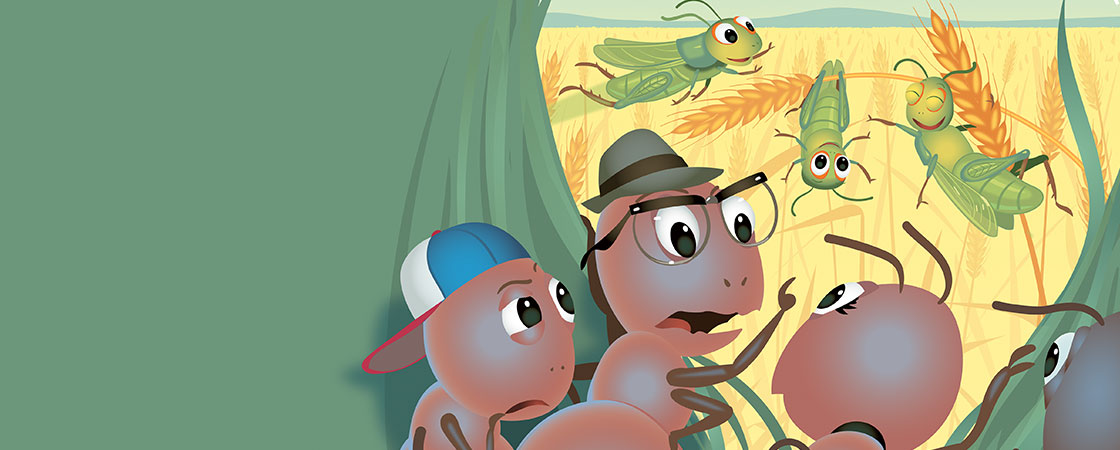S2: The next morning, the ants show the grasshoppers their piles of seeds.
Granny: Wow! We should have worked more this year.
Agnes (proudly): We worked all summer and fall.
Gavin: Although . . . you have so many seeds.
Gus: More than you’ll ever need!
Aaron: What do you mean?
Granny (gently): You might not need to work as much as you do.
Gavin: Life can be so beautiful and fun.
Granny: There’s so much to appreciate.
S3: The ants think about this. Agnes rings a bell.
Agnes: Time for chores!
Greta: Maybe we can help?
Annie: Do you know how to do chores?
All Grasshoppers: Nope. But we can learn!
S1: Agnes and Granny wipe the windows.
Agnes: Wipe to the left, wipe to the right.
Granny: Wiggle your feet, from morning ’til night!
S2: Aaron and Gavin sweep the floor.
Aaron: Collect the dirt as you sweep with the broom.
Gavin: Wiggle your knees as you clean the room.
S3: The kids wash the dishes.
Annie: Wet the rag, and wash the mug.
Greta: Swish your hips—
Alex (smiling): —like a rhyming bug!
S1: The ants and the grasshoppers copy each other’s movements.
Gavin: I’m sweeping!
Greta: I’m wiping!
Gus: I’m washing!
All Grasshoppers: We’re working!
Annie: I’m singing!
Alex: I’m wiggling!
Agnes: I’m giggling!
All Ants: We’re having fun!
S2: Everyone laughs and starts to dance around the room.
Alex: Whoa, look out the window!
S3: The ants stop and watch the snow fall.
Annie: I never noticed how beautiful the snow is before.
Aaron (softly): I guess we were too busy working to notice.
S1: Granny pats Aaron on the back.
Granny: Thank you, ants, for saving us from the snow.
Gus: And for teaching us how to work.
Aaron: You saved us too, grasshoppers—in a different way.
Gavin: From now on, we’ll help you clean and gather seeds.
Agnes: And we’ll take breaks to relax and to enjoy the moment.
Granny: We can balance work AND fun.
Aaron (smiling): Right now, I think it’s time for some more fun!
S2: Gavin grabs his fiddle as the group starts to sing.
Gus: There’s a time for work,
Alex: And a time for play.
Greta: We’ll do our work,
Annie: Then enjoy the day!

